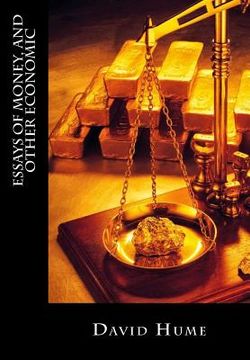Reseña del libro "Essays Of Money, and Other Economic (en Inglés)"
David Hume (1711-1776) was a Scottish philosopher, historian, economist, and essayist, known especially for his philosophical empiricism and scepticism. He was one of the most important figures in the history of Western philosophy and the Scottish Enlightenment. Hume is often grouped with John Locke, George Berkeley, and a handful of others as a British Empiricist. He changed the spelling of his name from the Scottish "Home" in 1734, because "Home" was pronounced as the English pronounced "Hume", which was not known in England. Hume attended the University of Edinburgh at the unusually early age of twelve (possibly as young as ten) at a time when fourteen was normal. At first he considered a career in law, but came to have, in his words, "an insurmountable aversion to everything but the pursuits of Philosophy and general Learning; and while [my family] fanceyed I was poring over Voet and Vinnius, Cicero and Virgil were the Authors which I was secretly devouring." He had little respect for the professors of his time, telling a friend in 1735, "there is nothing to be learnt from a Professor, which is not to be met with in Books." He found employment at various times as a merchant's clerk and as a tutor, while continuing to study philosophy and write his works, the first of which, A Treatise of Human Nature, he completed at age 26. It was not well received by critics in Great Britain. In 1744 Hume applied for the Chair of Pneumatics and Moral Philosophy at the University of Edinburgh. However, the position was given to someone else after Edinburgh ministers petitioned the town council not to appoint Hume because he was seen as an atheist. Later, Hume was charged with heresy, but he was defended by his young clerical friends, who argued that - as an atheist - he was outside the Church's jurisdiction. Despite his acquittal, Hume failed to gain the chair of philosophy at the University of Glasgow. Hume wrote on the subjects of philosophy (especially on epistemology - how one knows something to be true), religion, history, and politics. Through his discussions on politics, Hume developed many ideas that are prevalent in the field of economics today. This includes ideas on private property, inflation, and foreign trade. Referring to Hume's essay "Of the Balance of Trade," Paul Krugman (a Nobel-prize-winning economist) has remarked "... David Hume created what I consider the first true economic model.

